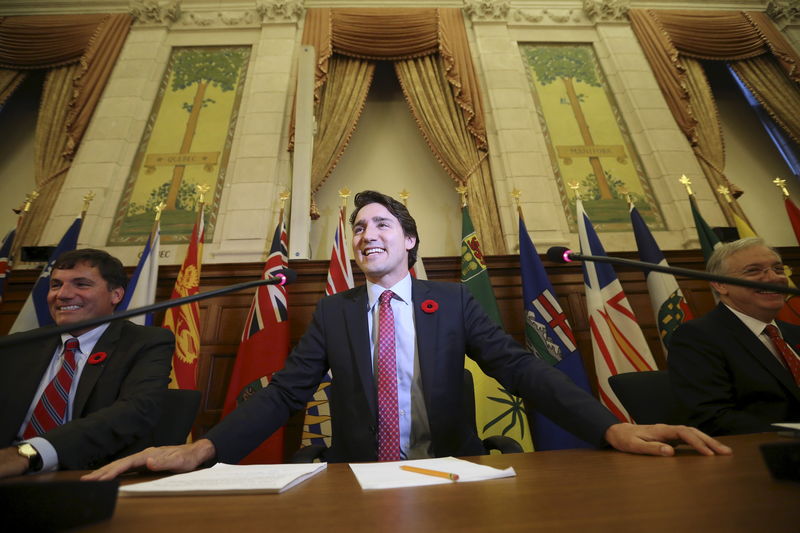By Ketki Saxena
Investing.com – At a Liberal caucus retreat earlier today in New Brunswick, Canadian Prime Minister Justin Trudeau unveiled details of a three-pronged plan aimed at easing the impact of inflation on low-to-modest income Canadian families.
Following through on commitments to the NDP in a quid pro quo for the party’s support of Trudeau’s liberals, the Prime Minister will be tabling legislation towards a phased national dental care, a doubling of the Federal GST rebate, and a top-up to housing benefits for renters.
The legislation will be tabled at the start of the fall sitting of Parliament and will be subject to parliamentary approval.
While planning to table a budget of $4.6-billion - of which more than $ 3 billion in new spending has not been previously budgeted - Trudeau remains adamant that the massive government spending package will not further contribute to inflation.
“What we’re doing with these specific measures is targeting those most vulnerable, those who are most hard hit by the increases in inflation,” Trudeau said at the Liberal Caucus ahead of the next parliamentary sitting, “They are also sufficiently targeted that we are confident that they will not contribute to increased inflation.”
Economists however remain skeptical about this claim. In a recent research note ahead of the expected affordability announcement from Trudeau, CIBC (TSX:CM) chief economist Avery Shenfeld noted:
“In a period of high inflation and excess demand, cutting taxes or handing out cheques can add fuel to the inflationary fire, and make the job of a central bank that’s raising rates to cool demand all that more troublesome. What concerns us is that federal and provincial governments in Canada are feeling tempted to ‘do something to help their constituents cope with high prices.”
Here’s the “something” that the Trudeau government now plans to do.
Dental Care
The long-awaited first phase of a national dental care is targeted for December 1st and will focus on coverage for children under the age of 12 in families with an income of less than $90,000.
The "Canada Dental Benefit" will provide parents or guardians of eligible children with "direct, up-front tax-free payments to cover dental expenses" of up to $650 per child per year.
By 2025, the plan is expected to be available to all Canadian families with incomes of less than $90,000 annually, with no co-pays for anyone earning less than $70,000 in annual income.
$5.3 billion of the 2022 federal budget has been mandated to Health Canada over the next five years to oversee the implementation of the program.
The initial phase of the program is expected to benefit about 500,000 Canadian children and cost of $938 million.
HOUSING BENEFIT
Eligible renters are also expected to receive $500 one-time rental support program called the Canada Housing Benefit by year’s end.
The top-up will apply to renters with adjusted net incomes below $35,000 for families, or $20,000 for individuals who spend at least 30% of their adjusted net income on shelter, and are paying rent on their own primary residence in Canada.
$475 million has previously been earmarked for the top-up in the 2022 federal budget, but the proposed funding is now expected to total $1.2 billion and support an estimated 1.8 million Canadians.
GST/HST TAX CREDIT
The Liberals will also be introducing a temporary 6-month doubling of the GST rebate hike. The GST/HST credit is a non-taxable payment made four times a year to eligible Canadians, meant to help offset the GST/HST taxes paid through the year.
Currently, Canadians with a maximum income of just over $49,000 receive $467 a year. Married and common law couples receive a maximum of $612 and an additional $161 for each child under 19.
The estimated cost to Canadian taxpayers will come with a 2.5-billion price tag and is expected to support 11 million Canadians.
